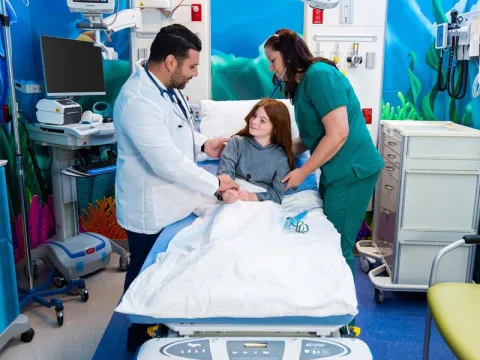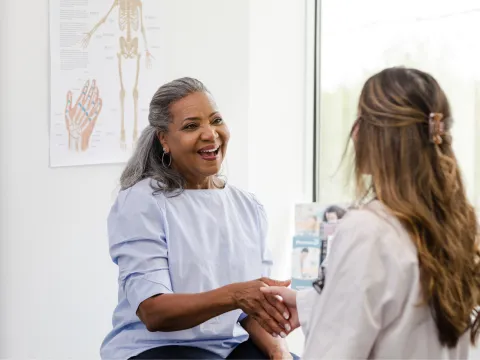- AdventHealth

Endometriosis is a condition that often goes undiagnosed in many women. “ It is a common problem where the tissue that should only be growing on the inside of the uterus is growing elsewhere outside of the endometrium,” explains Mark Alkass, MD . Dr. Alkass is a board-certified OB/GYN with AdventHealth Medical Group.
Endometriosis is most commonly found in the pelvis and results in pain that’s caused by swelling, fluctuating with the hormonal changes of the menstrual cycle. The disease affects about 1 in 10 reproductive-aged women.
Dr. Alkass explains that this is a condition that can significantly affect a woman’s quality of life. “ Under-treated endometriosis can get worse, causing severe pain and fertility problems.” Making matters worse, most women don’t realize that severe pain during their periods isn’t normal, or that endometriosis can be treated.
Endometriosis Symptoms and Risk Factors to Know
Endometriosis can be very painful, and symptoms can worsen during your menstrual cycle. The pain may get worse over time, with every period. People with endometriosis may also experience other symptoms, such as:
- Bloating
- Constipation or diarrhea
- Fatigue
- Heavy bleeding during periods
- Infertility
- Pain when using the bathroom
If any of these symptoms sound too familiar, it’s important to discuss them with a doctor right away to prevent further scar tissue formation.
What Causes Endometriosis?
While the cause of endometriosis isn’t clear, doctors have identified several factors that may put someone at a higher risk for the condition. A person may be at risk for endometriosis if they have:
- A mother or sister with the condition
- A low body mass index
- Menstrual cycles of 27 days or less
- Never given birth
- An age of menarche (started menstruating) before age 10
- Uterine abnormalities
Endometriosis typically develops several years after menstruation starts. However, even if someone has a few of these risk factors, they may never develop the condition.
Endometriosis and Pregnancy
Fertility can sometimes affect women by preventing fertilization and implantation, due to the scar tissue resulting from endometriosis.
Other women living with endometriosis notice dramatic flare-ups of symptoms during their reproductive years. Not only does it strongly impact a woman’s quality of life, but the disease's impact can trickle down to lifestyle choices and interpersonal relationships, as well as fertility.
There are several options to help manage endometriosis and increase fertility. Dr. Alkass explains that “treatment options are tailored to the needs of the patient and can include medications as well as surgery to remove scar tissue and possibly increase fertility.”
Living With Endometriosis
With such a significant impact, endometriosis is a serious concern, but something can be done to help. There are treatments available to help you live a fulfilling life, so it’s important to find a provider who will listen to your concerns and develop the right plan of care for you.
You Don’t Have to Face Endometriosis Alone
There is no cure for endometriosis, but several treatment options are available, including lifestyle modifications, medication and surgery. Our Health Navigation Team can help you get started treating your symptoms and put you in touch with a care provider. Visit HerHealthNavigator.com to get started.



